I am a devoted collector of keepsakes and relics, and feel as though the physical DNA of the owner, or giver, is woven into the object, leaves an imprint, and infuses it with preciousness. The jars in this image are filled with photographs, love notes, letters, and personal relics, along with milk, honey, water, and wine. I feel as though these precious objects infuse the liquids and create a medicine that flows into the blood of the sitter as an antidote to his suffering.
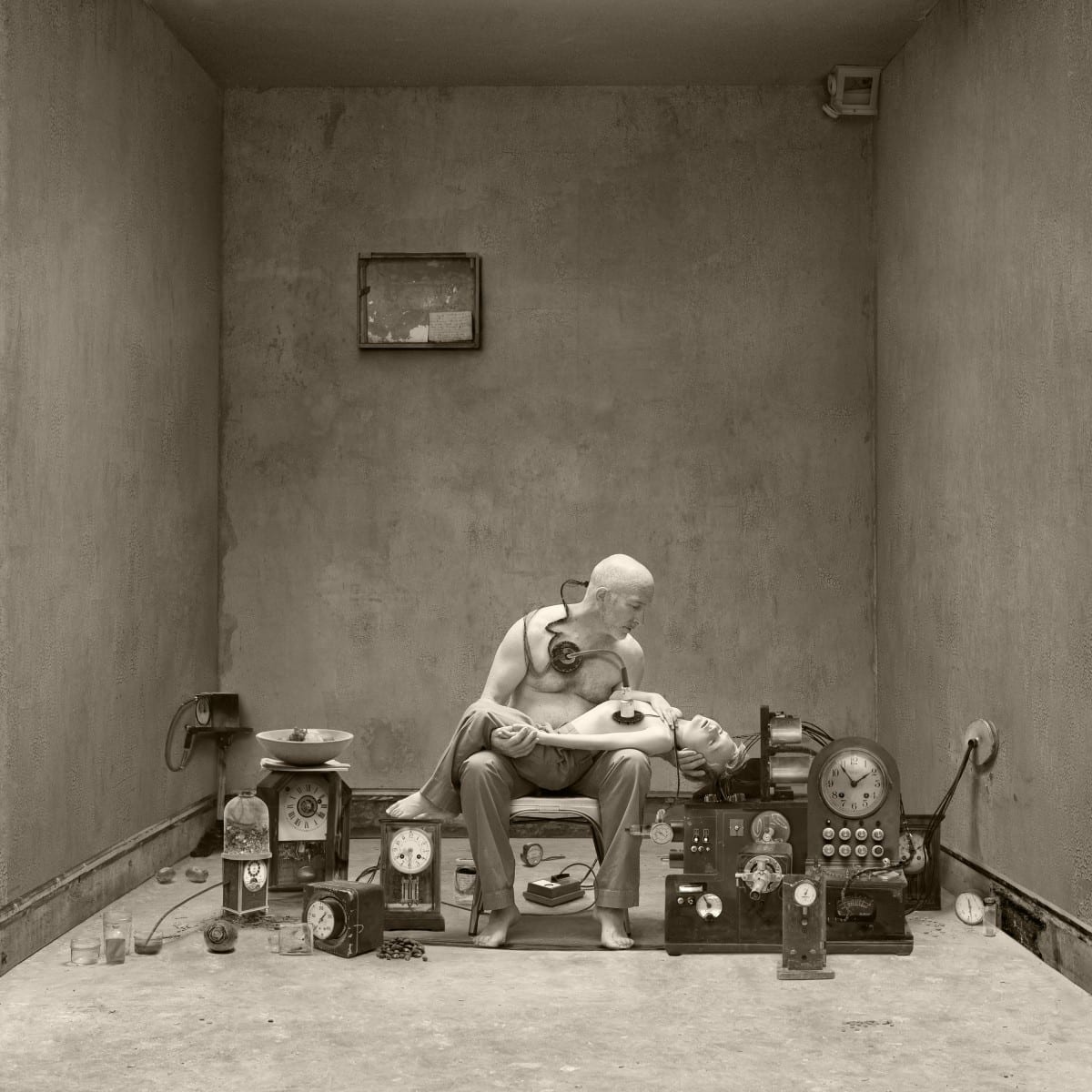
I met a gentleman once at a hotel bar who told me about a day in the life of his family that changed his course forever. He was at work, and received an urgent phone call from his wife. She spoke in frantic, broken language, desperately asking him to meet her at the hospital, something was wrong with their son. He remembers the instant dizziness, out-of-body-ness, the panic, his racing heart, blurry vision, choking shortness of breath. He ran to the elevator, into the garage, jumped in his car and peeled onto the street, everything in slow motion, fragmented, even strangely tinted and louder than usual. He arrived at the hospital, and was rushed to his six-year-old son who lay covered in wires in a white bed, tiny, listless, and blue. He took the boy’s hand and touched it to his own lips. He whispered into his small palm, repeating a prayer, asking God to take life from his body, and give it to his son. The little boy gasped, drew a cleansing breath, and began to live again. They believe it was a miracle. I think I do too.
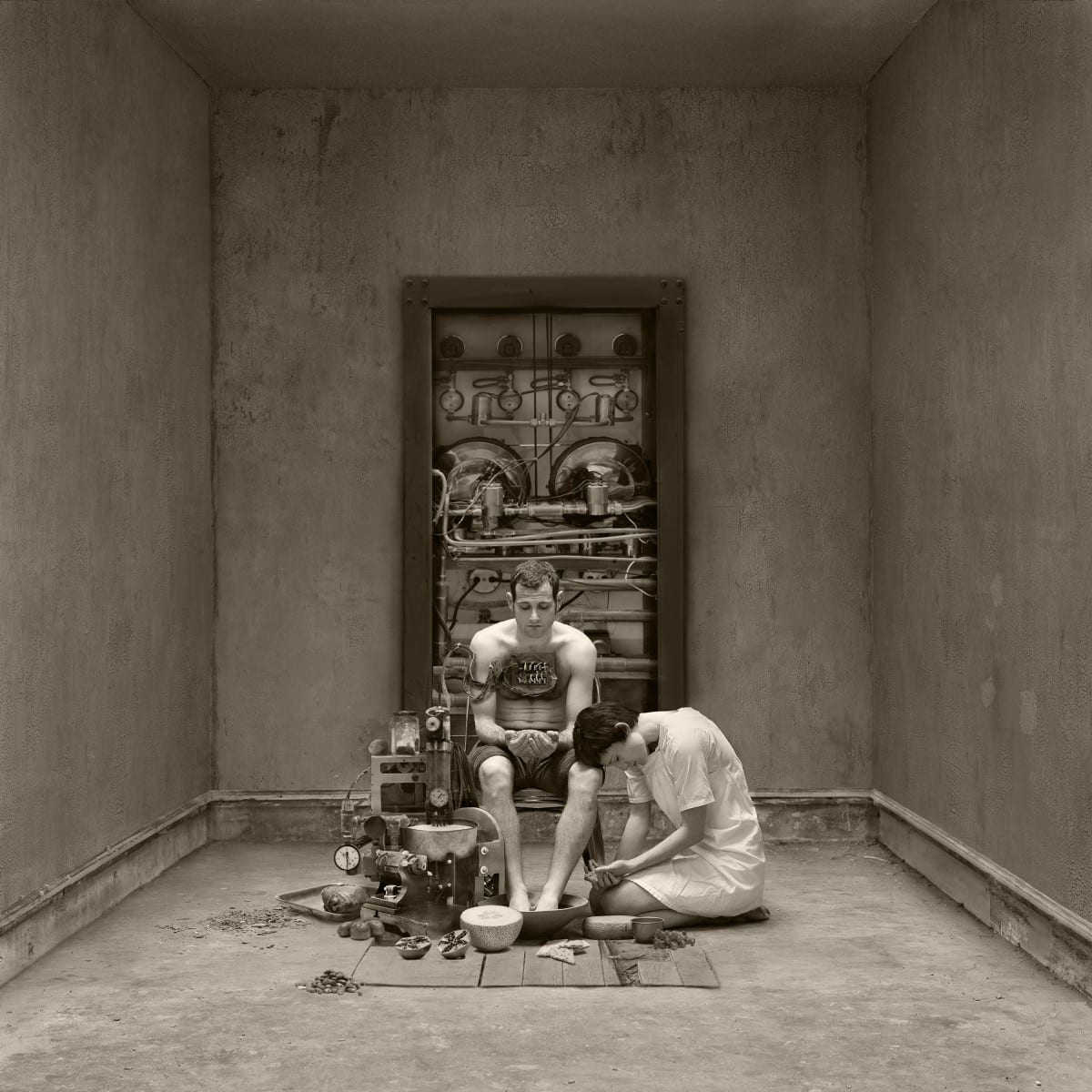
I have a close friend who died of brain cancer a number of years ago. I was able to visit him toward the end of his life, and spend time with his family. I can still vividly picture images of those times, and am still humbled by the immeasurable love that filled their home. I watched his wife care for him graciously and selflessly, preparing meals and medicines, holding his hand, lying beside him. I was reminded Biblical Manna; that it, like sacrificial love, was new, nourishing, and abundant every day.
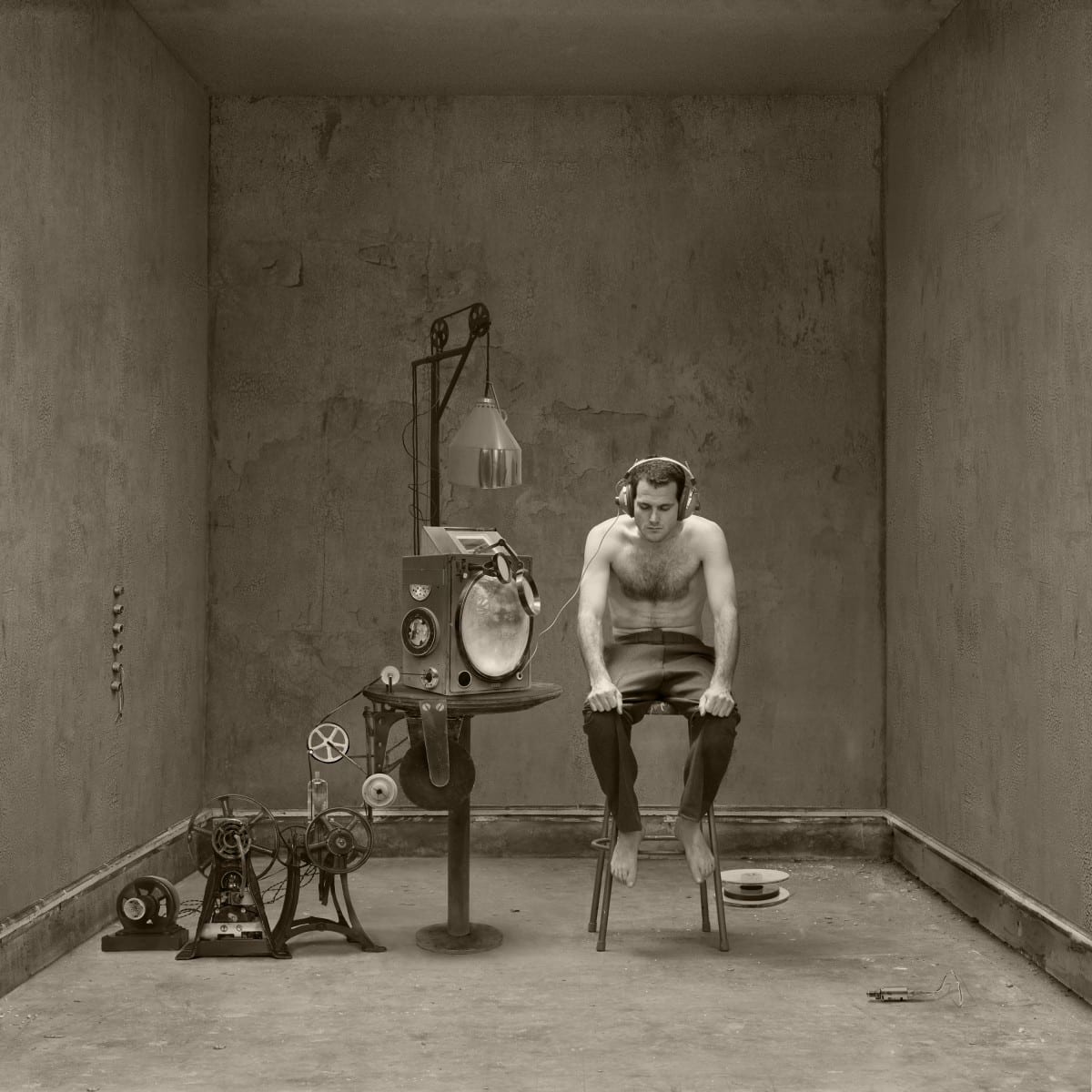
When I’m afraid, I feel an aching need for resolution, answers to questions, and end to the un-knowing. This machine tells the future to an anxious listener, and shows hopeful images to settle the heart.
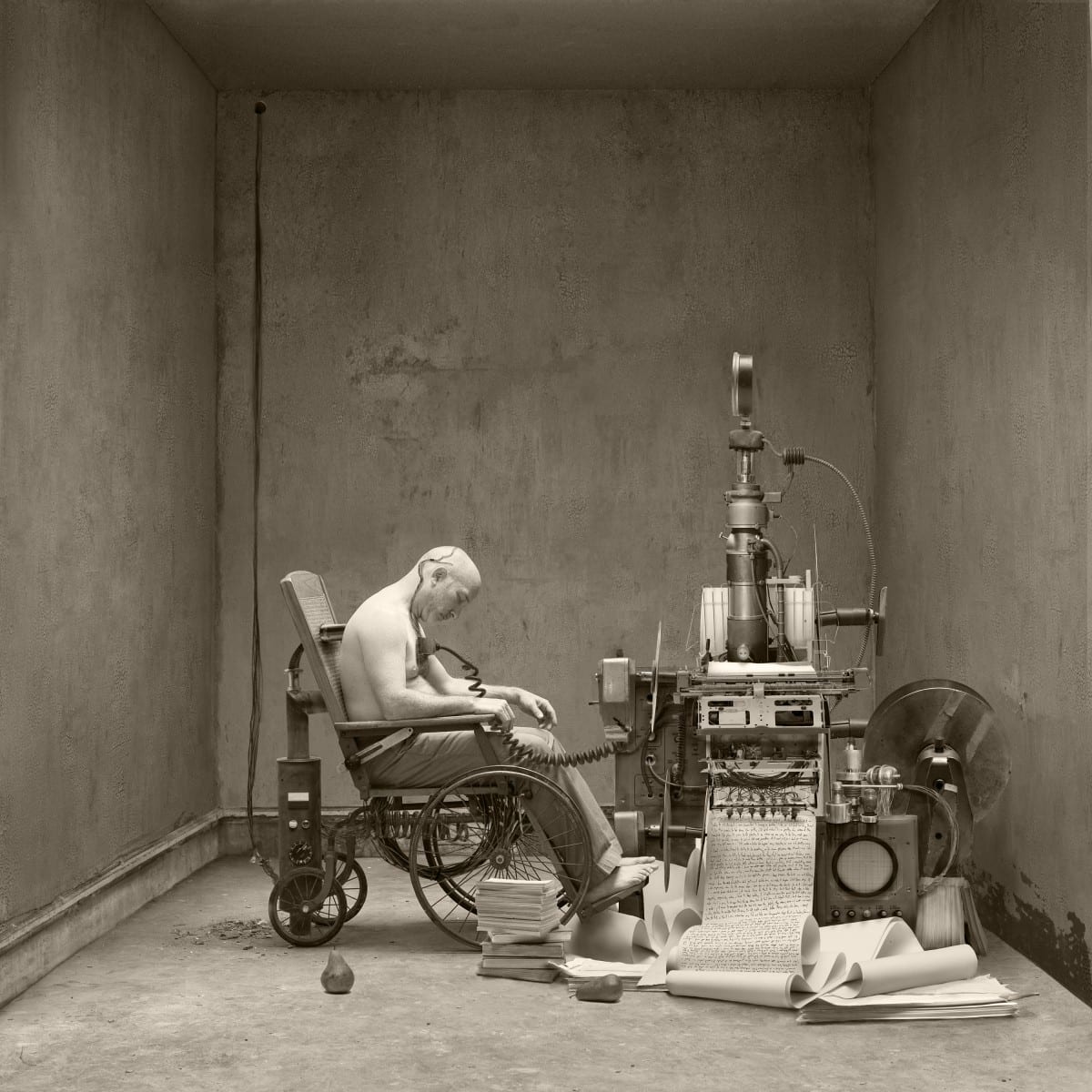
I once listened to a radio show where a soft-spoken, sentimental man in his eighties recounted stories about falling in love, marrying, and watching his children grow up. He talks about afternoons in the city, holding his wife’s waist as they walked together, describes her young, freckled face, and how she loved to greet each dog as they passed by. I was transfixed by the sentiment and tenderness. The machine in this image collects the sitter’s memories, and transcribes them to paper.
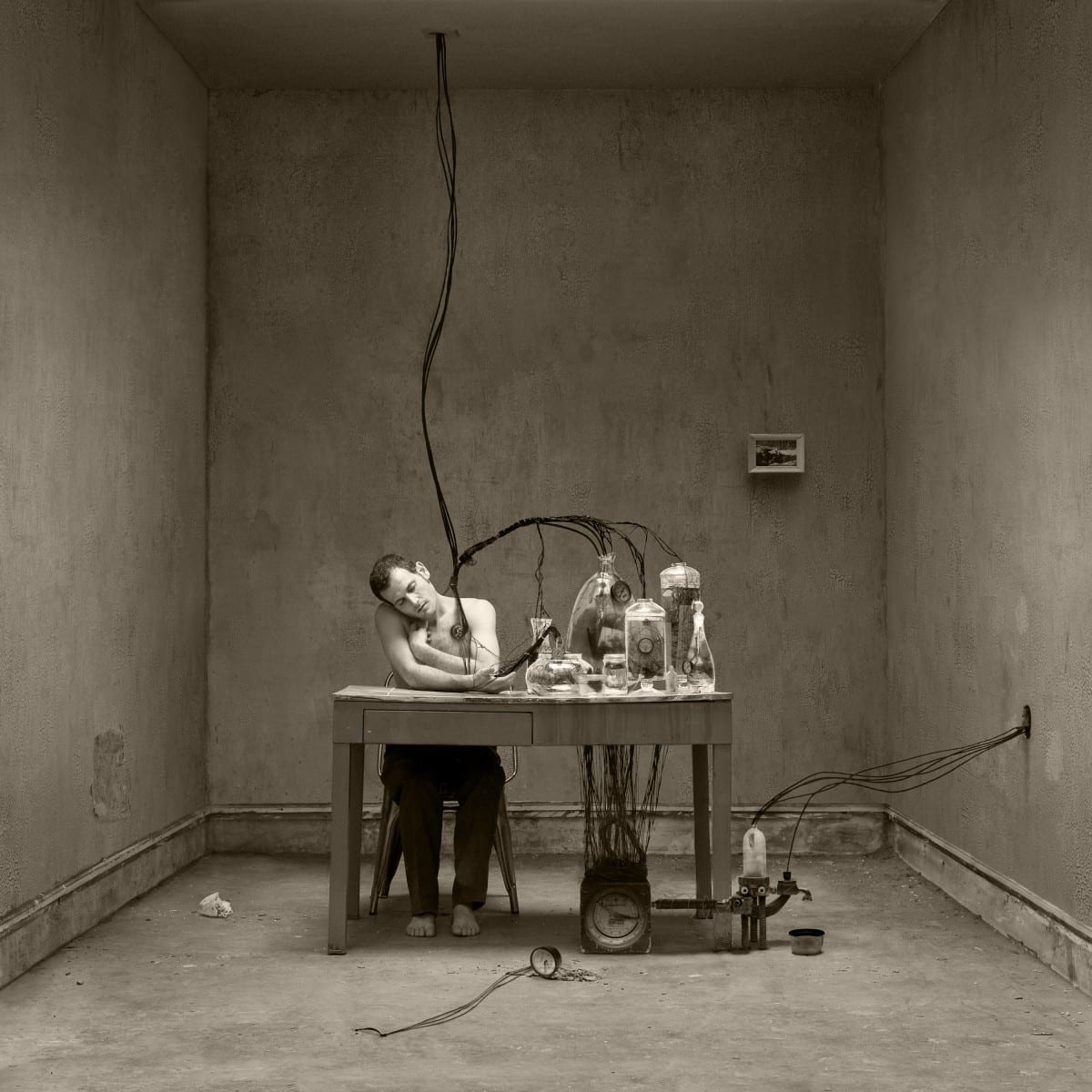
I am a devoted collector of keepsakes and relics, and feel as though the physical DNA of the owner, or giver, is woven into the object, leaves an imprint, and infuses it with preciousness. The jars in this image are filled with photographs, love notes, letters, and personal relics, along with milk, honey, water, and wine. I feel as though these precious objects infuse the liquids and create a medicine that flows into the blood of the sitter as an antidote to his suffering.
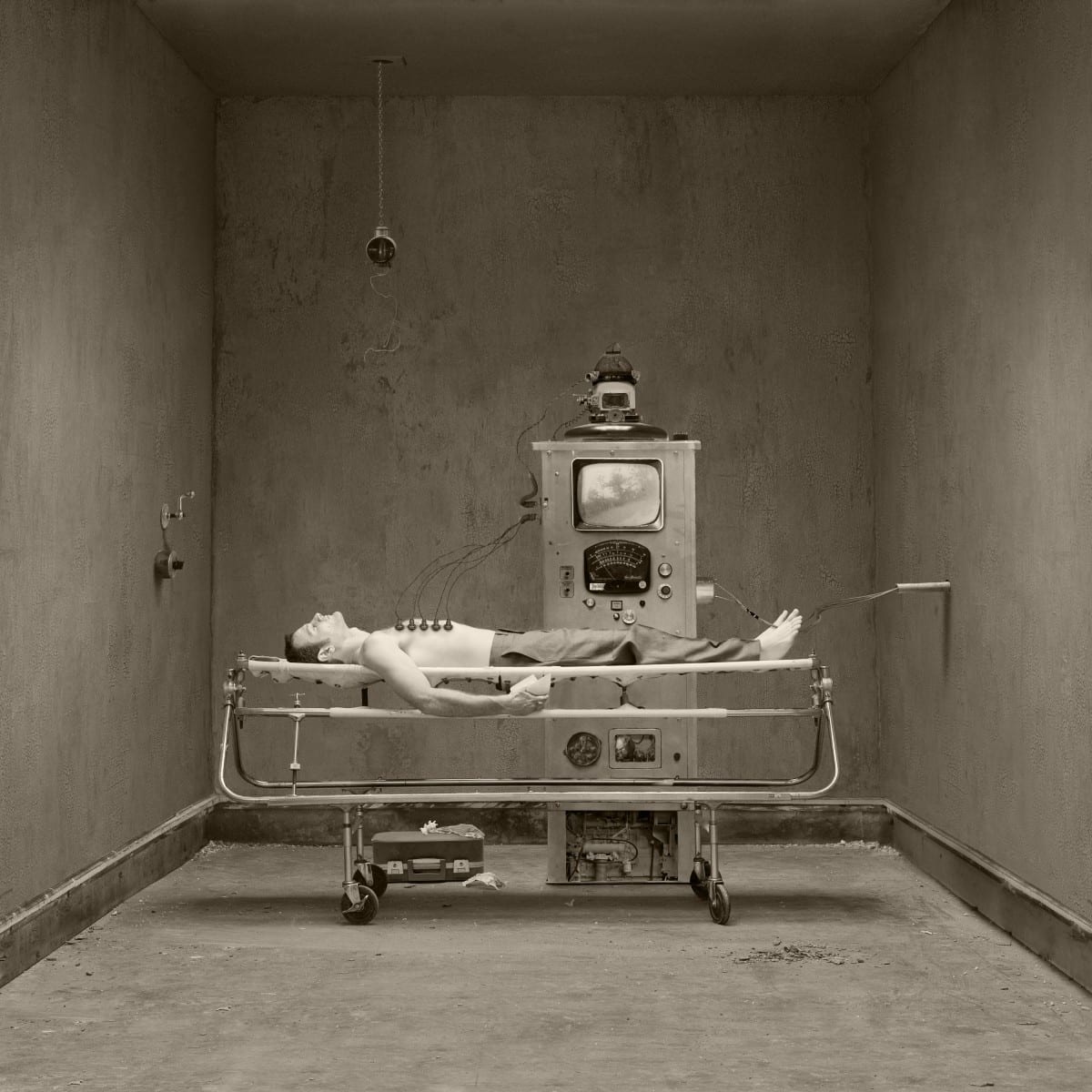
Years ago, my brother and I created a collection of home movies as a Christmas gift for our parents. We set photographs and video clips of t-ball games, Christmas mornings, piano recitals, talent shows, and church plays to music, like a cinematic representation of our childhood memories. We watch it together as a family, laugh, and cry together, and saturate ourselves in heartfelt nostalgia. This machine collects photographs and video clips of life from the patient, collates and sequences them, and creates a movie to memorialize them.
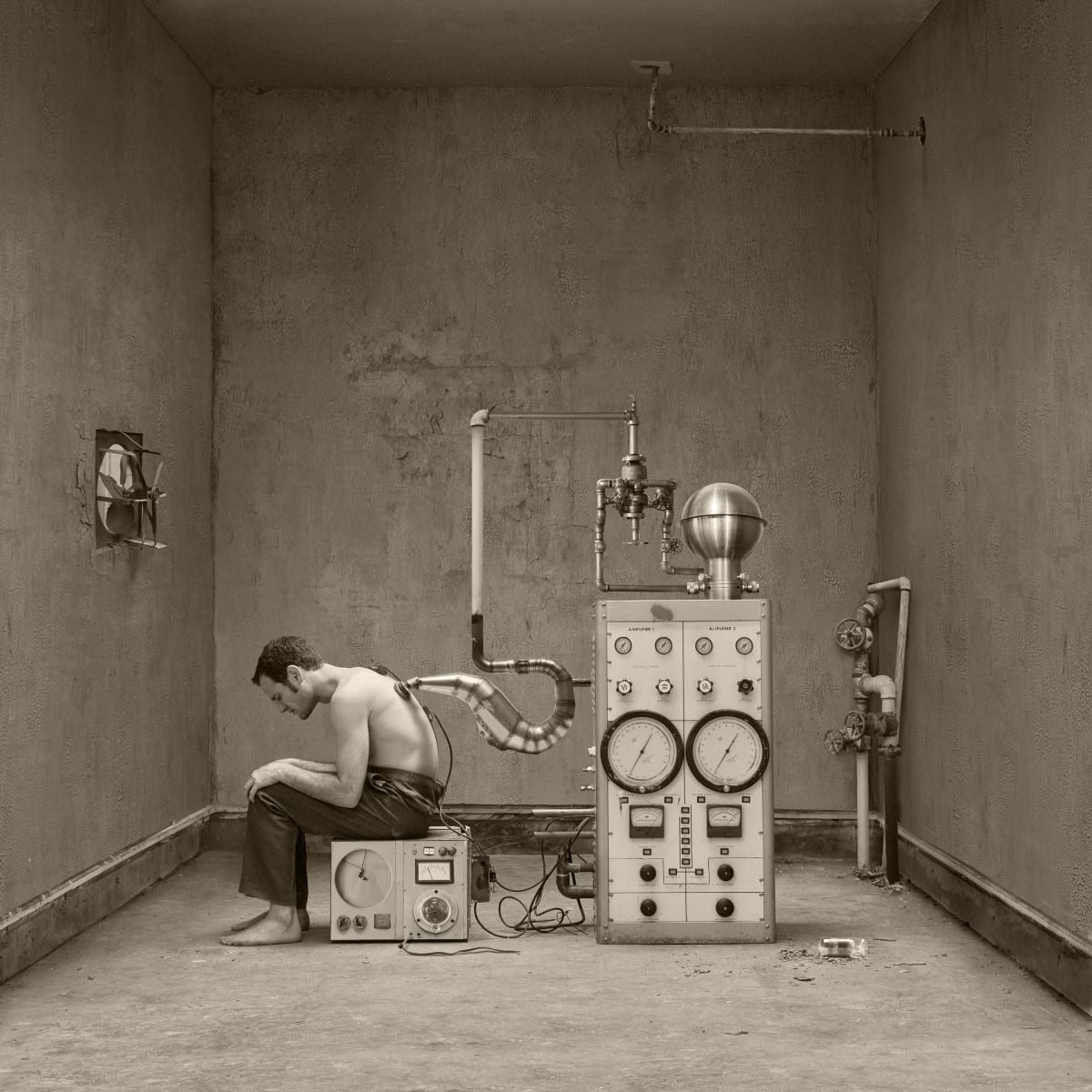
In the writings of Luke, before his crucifixion, Jesus prays to his Father, asking “If you are willing, take this cup from me.” This miracle-machine extracts burden, fear, or suffering from the body as an answer to such a prayer.
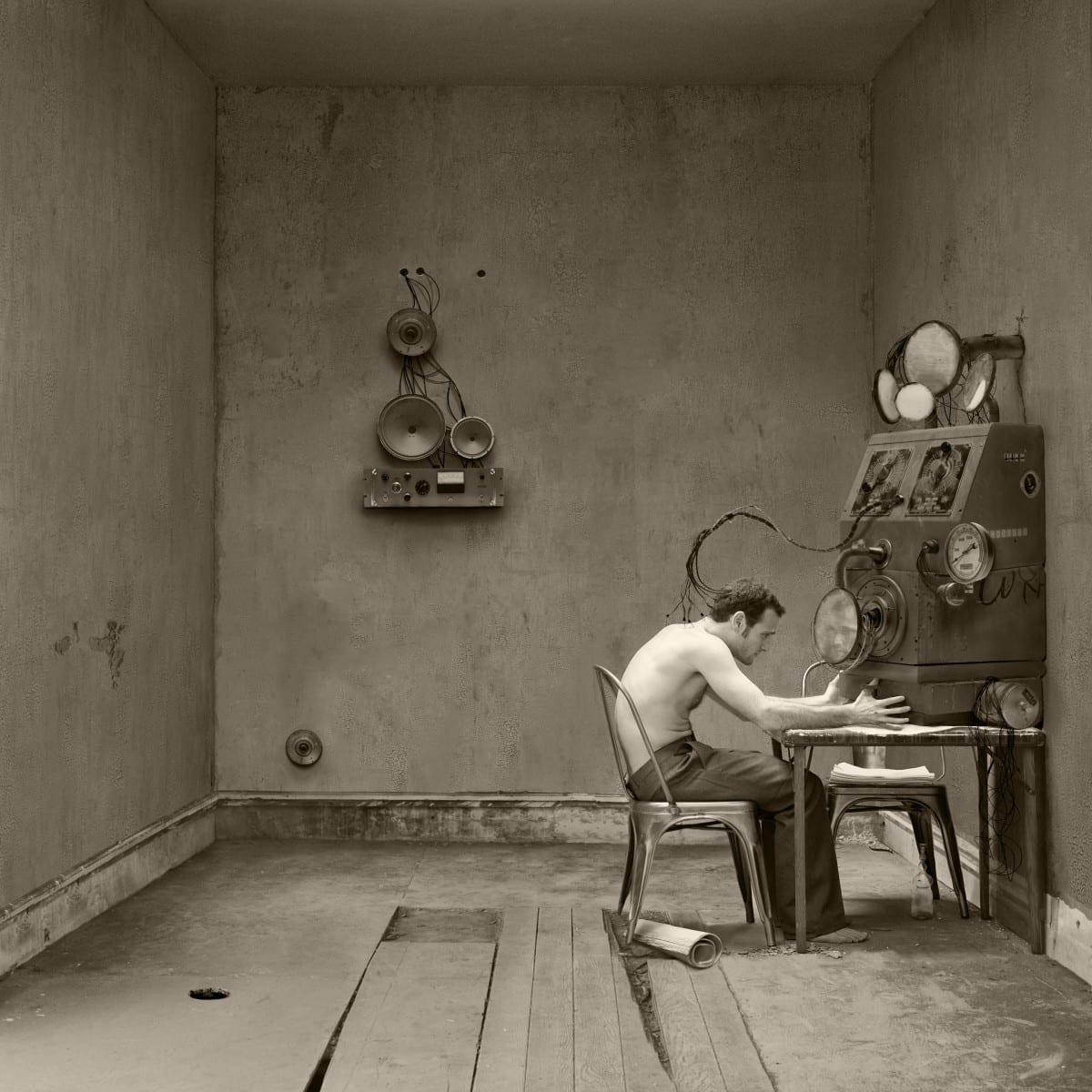
When people suffer, we often plead to negotiate, to give up something precious to receive relief from what ails us, promise change in our lives, or ask for forgiveness. This machine allows the sitter to make one trade, one sacrifice, to alleviate their pain.
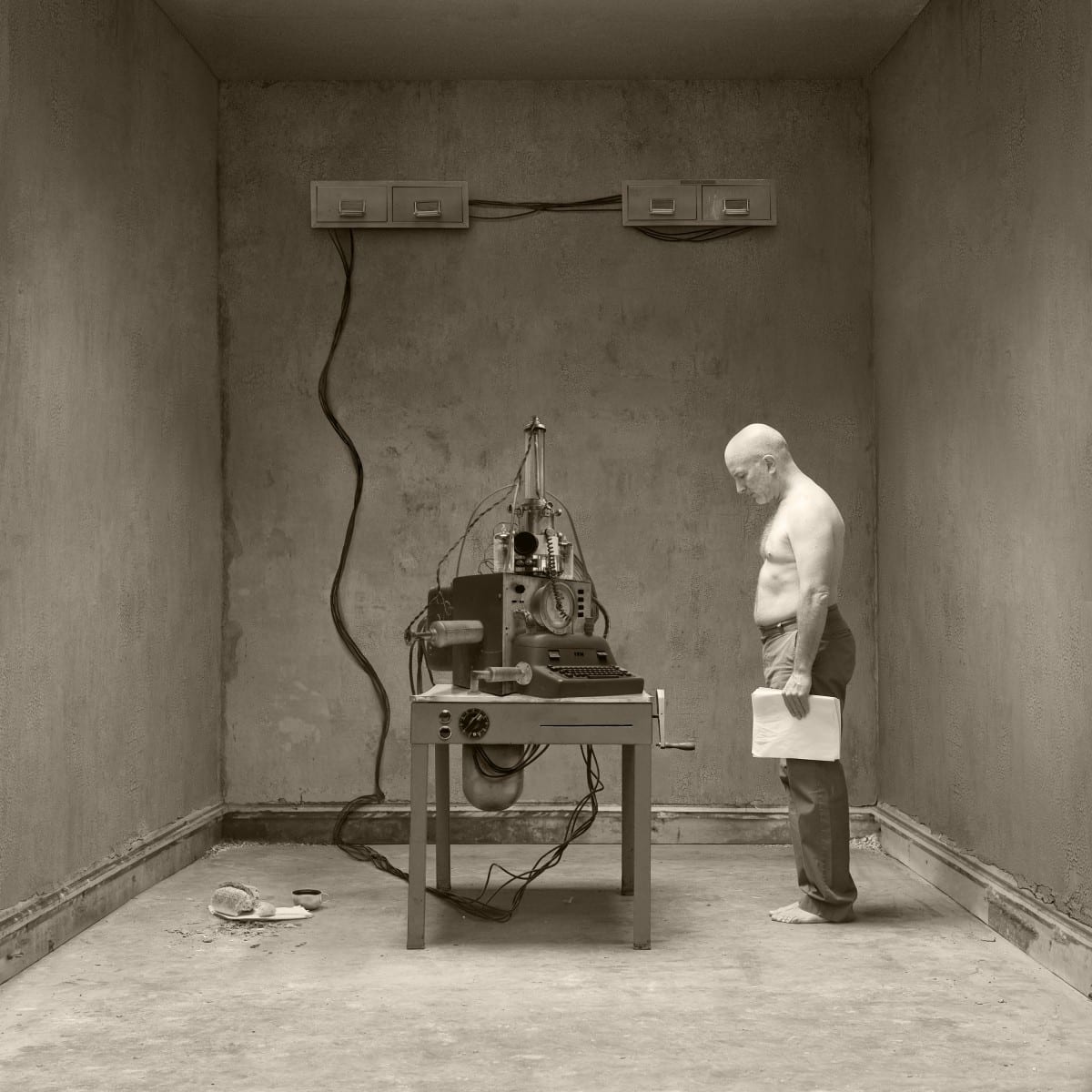
Page by page, this machine scans a collection of final confessions, secrets, and penance. They are transformed, transferred, and stored in safe spaces, allowing restitution, and a quiet mind.
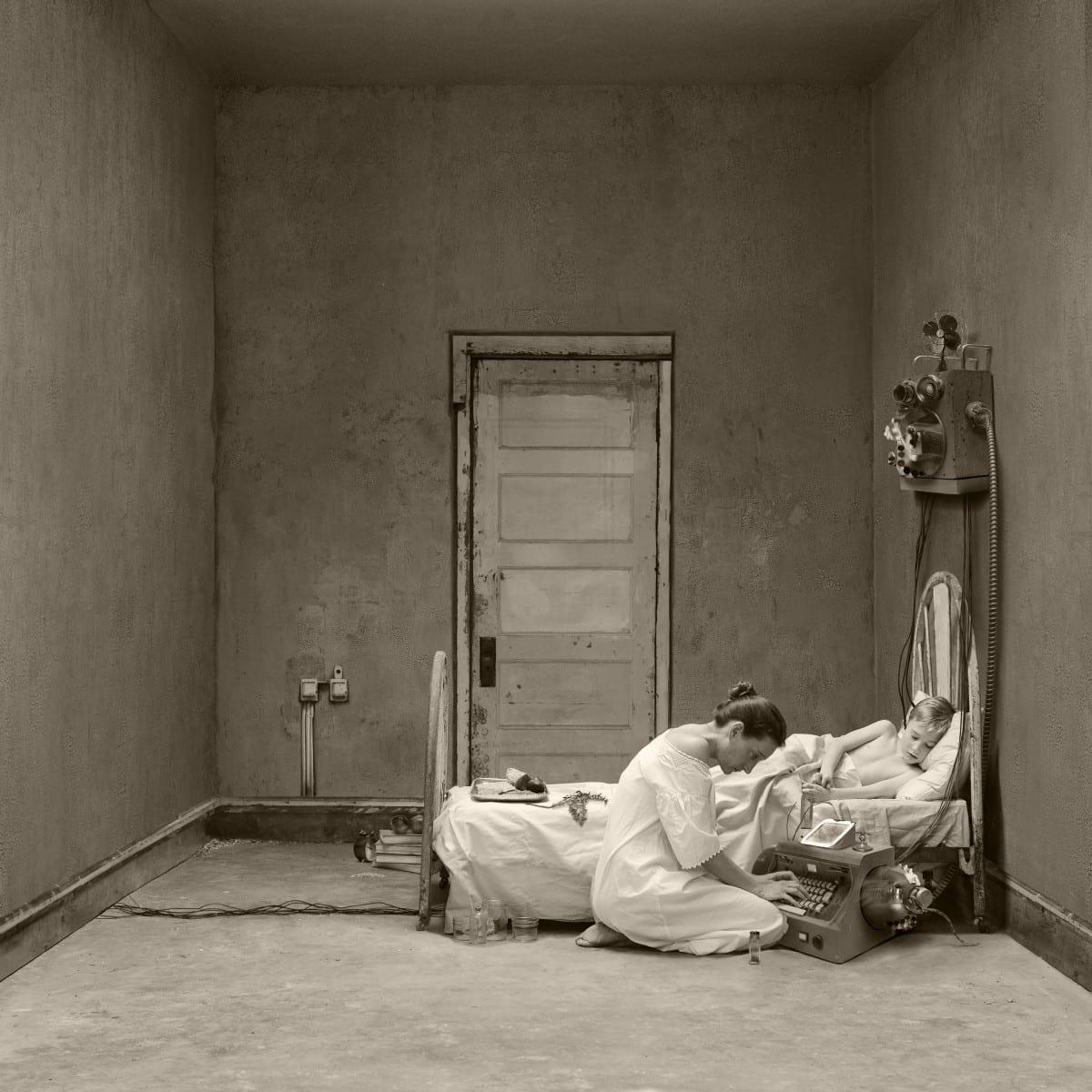
A woman once told me that when her son was in a coma, she wrote him letters every day, and placed them under his pillow while he slept. Now that he is grown, he has them as evidence of her unfailing love, and hope for him. This machine transcribes a mother’s thoughts, and delivers them safely to her sleeping son.
Featured Image: Jennifer B. Hudson, Safekeeping from the series Medic, Pigment Ink Print, 10″ x 10″, Edition of 10, 2011
All images © of the artist
